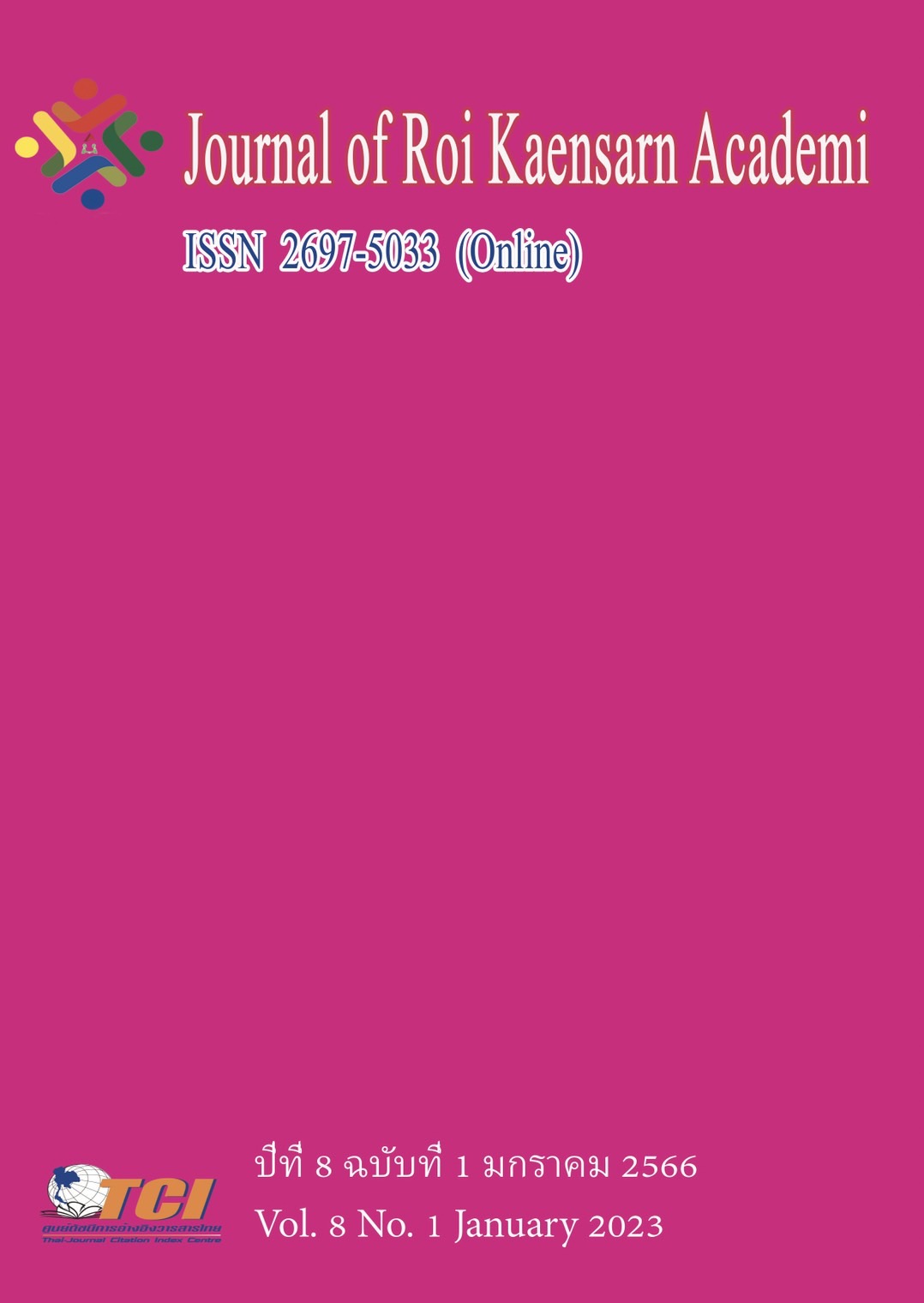The Strategic Leadership Development Model in The Digital Age of Educational Institution Administrators Under The Office of the Non-Formal and Informal Education in The North
Main Article Content
บทคัดย่อ
In today's world that is changing rapidly and with the rapid development of technology. Driving a quality education administration requires the leadership of the school administrators to drive the organization to success. Strategic leadership in the digital era is therefore important in this era that will lead to the improvement of the quality of educational institutions and the enhancement of management efficiency, which will result in a link to the development of the quality of education and Developing students' future skills. The objectives of this research were to study the states conditions problems guidelines and analyze the components of development of a strategic leadership model in the digital age of educational institution administrators under the office of the non-formal and informal education in the north, create an development of a strategic leadership model in the digital age of educational institution administrators under the office of the non-formal and informal education in the north, and evaluate the model. The research was conducted by studying the states problems guidelines and analyze the model components of strategic leadership in the digital age, and developing a model of strategic leadership model in the digital age. The data was collected using questionnaires, a workshop, connoisseurship, and public hearing. The data was then analyzed using mean, standard deviation, and content analysis. The research findings revealed that the eight components of the model consisted of 1) Principle 2) Objective 3) Input including create focus vision mission and corporate direction in the digital age, strategic planning in the digital age, originality and build relationships in the digital age, control strategy in the digital age, evaluate strategies in the digital age, 4) Process including implement strategies in the digital age, maintain a productive culture in the digital age, effective communication in the digital age, working as a team in the digital age, 5) Outputs, 6) Results, 7) Effect and 8) Success conditions. The strategic leadership development model in the digital age of educational institution administrators under the office of the non-formal and informal education in the north was accurate and suitable at a highest level.
Article Details
เอกสารอ้างอิง
Ministry of Education. (2016). The 12th National Education Development Plan (2017-2021). Bangkok: Atthaphon Publication.
Teera Runcharoen. (2010). Professionalism in educational organization and administration. Education reform era for reform round 2 and external assessment round 3. Khon Kaen: Millet Publishing House.
Poompipat Rukponmongkol. (2015). Guidelines for developing leadership of educational institution administrators in developing educational institutions as learning organizations. Journal of Lampang Rajabhat University. 4 (1), 143-160.
Phimphan Suriyo. (2014). Factors in educational institute administrators affecting administrative efficiency. public school academy Department of Local Administrative Promotion. Master of Education Thesis Education Administration Loei Rajabhat University.
Netpanna Yawirat. (2006). Leadership and Strategic Leadership. (5th edition). Bangkok: Central Express.
Kankanat Suwanratchapoom. (2014). Strategic Leadership: A Modern Leadership Model. Doctoral thesis (Educational Administration). Srinakharinwirot University.
Jinnawat Pakotang. (2018). Leadership in the digital age for professional school administrators. Ubon Ratchathani, Siritham Offset Publishing House.
Jiraphon Sangpho et al. (2018). Strategic Leadership Development for Administrators of Private Vocational Colleges. College of Innovation Thammasat University, Phra Nakhon.
Office of the Non-Formal Education Commission. (2016). Report of the NFE on the Fiscal Year 2015. Online. Accessed from: http://www.nfe.go.th/onie2019/index.php/about- us/performance-report.html.
Rangsan Prasertsri. (2008). Leadership. Second Edition. Bangkok: Thira Film and Sci-Tec Co., Ltd.
Suwatsan Rakkantho. (2016). Model of Strategic Leadership Development for Sangha Administration. of the bishop (Doctor of Education Thesis) Major in Educational Leadership and Innovation Prince of Songkla University.
Poompipat Rukponmongkol. (2015). Causative factors affecting public mind behavior of secondary school students. Under the Office of the Basic Education Commission. Journal of Educational Administration Burapha University. 9 (2), 76-90.
Paradee Anannawee. (2002). Factors affecting the effectiveness of primary schools under the Office of the National Primary Education Commission. Thesis D.D.C. Chonburi : Burapha University.
Wachirawut Panprom. (2013). Leadership development model for administrators in sufficiency education institutions. under the Secondary Education Service Area Office in Northeast. Thesis: Sakon Nakhon Rajabhat University.
Surasak Ladathanasak. (2018). Strategic Leadership Development Model of Executives. Garment factory in Sakon Nakhon province. (Doctor of Education Thesis) Major in Educational Administration and Leadership Sakon Nakhon Rajabhat University.
Suwatsan Rakkantho. (2016). Model of Strategic Leadership Development for Sangha Administration. of the bishop (Doctor of Education Thesis) Major in Educational Leadership and Innovation Prince of Songkla University

